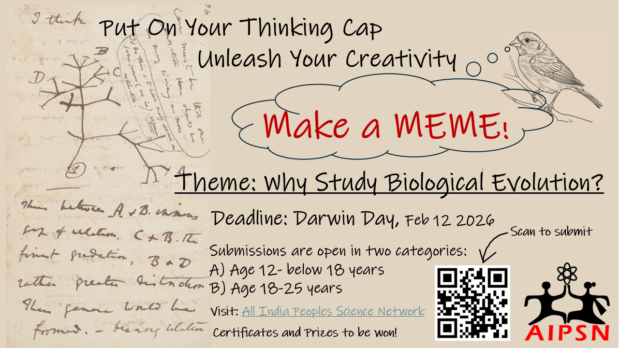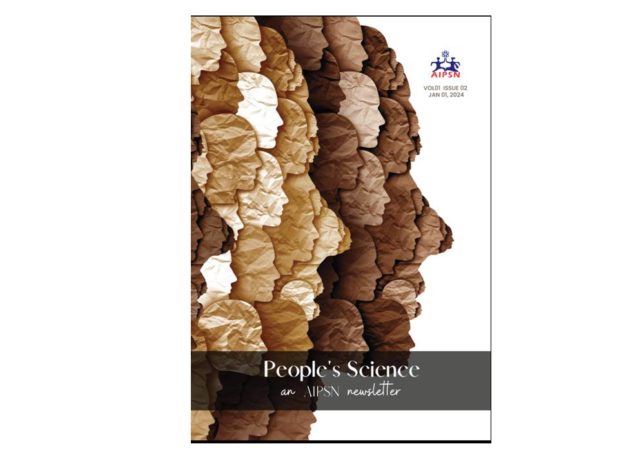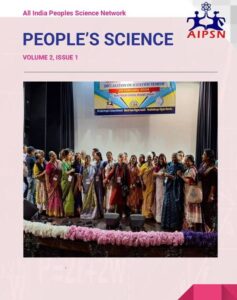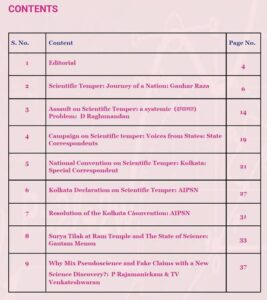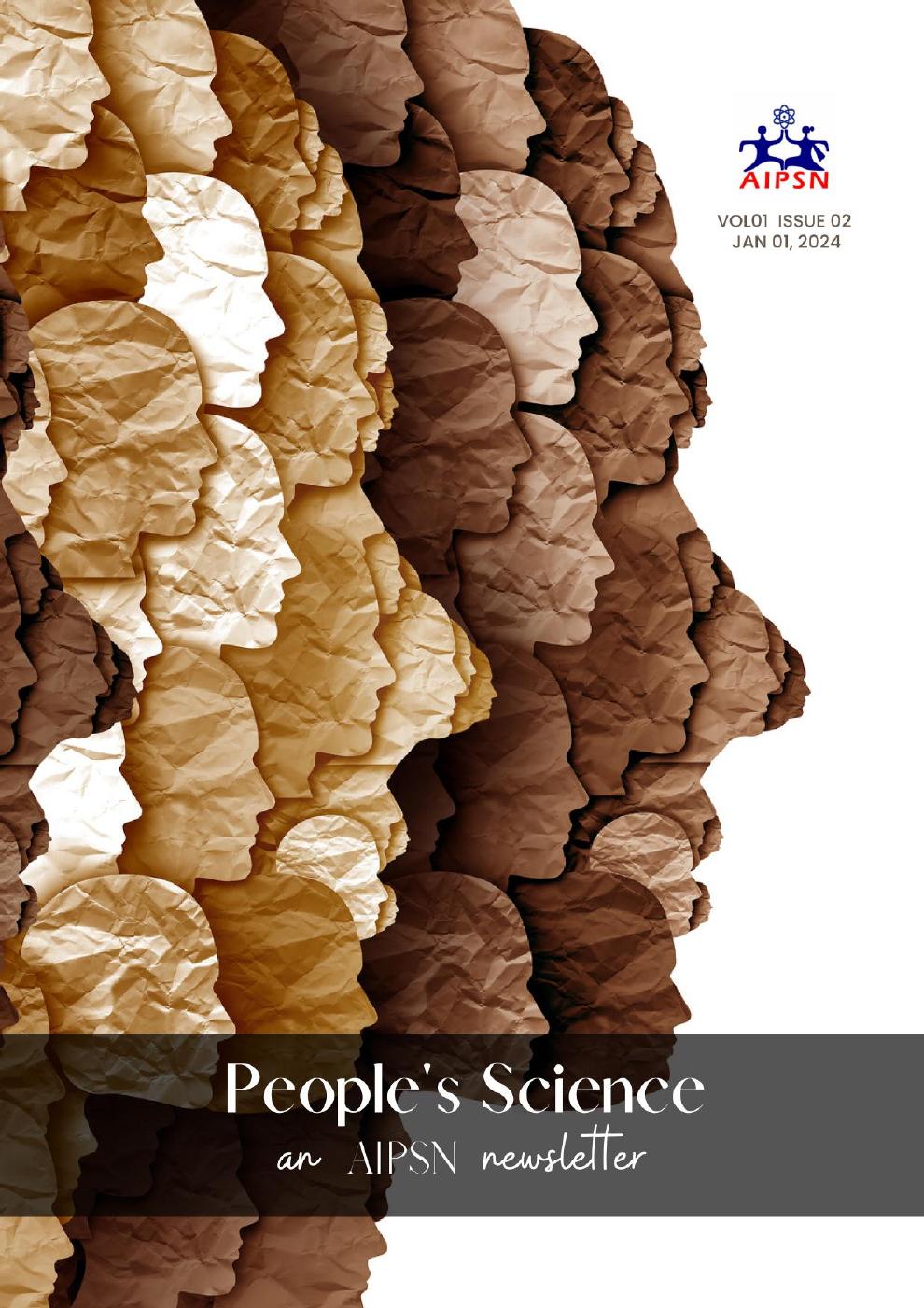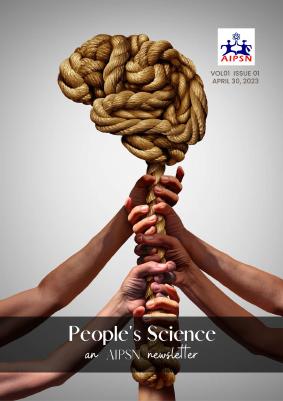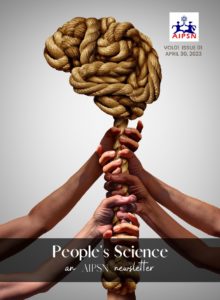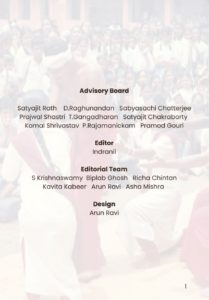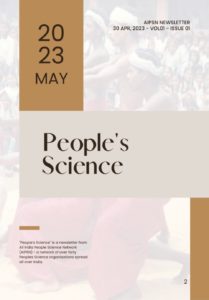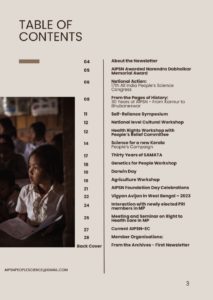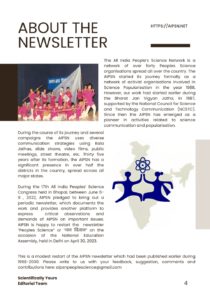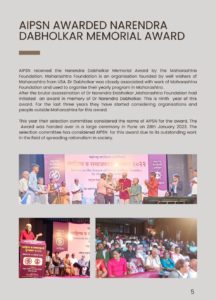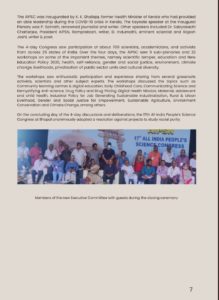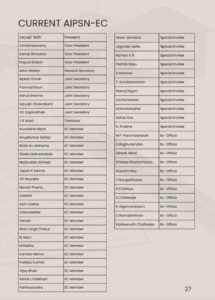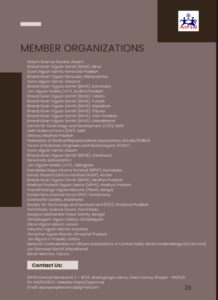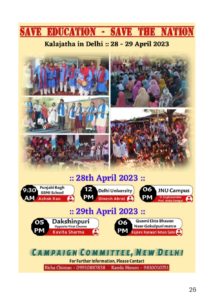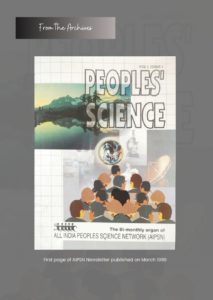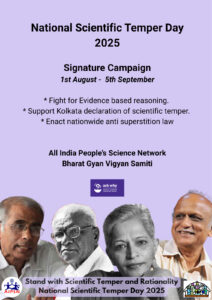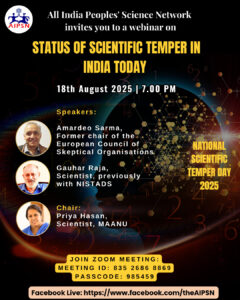Click here to read the full version
Click here to read a short version
6 Aug 2025
80 Years After Hiroshima & Nagasaki: Need Total Nuclear Disarmament
The All India People’s Science Network (AIPSN) strongly condemns the development, use, and continued deployment of nuclear weapons. It calls for the rebuilding of a global people’s movement dedicated to peace, against war and militarism, and in particular for complete nuclear disarmament. In a significant move, a gathering of Nobel Laureates issued a declaration in July 2025 calling for the prevention of nuclear war—the first such unified statement from that community.
Eighty years have passed since the United States dropped atomic bombs on Hiroshima on August 6, 1945, and Nagasaki on August 9, 1945, during the closing stages of World War II. Japan was looking for ways to surrender, having already been decisively defeated. Still, hundreds of thousands of civilians, including children and the elderly, were killed when the bombs were used. About 350,000 people had perished as a result of the bombings by the end of 1945, and both cities were completely destroyed. The extent of the damage to civilians was never seen before in human history.
Following the war, the world entered a prolonged arms race. By the 1980s, the global nuclear arsenal had ballooned to nearly 70,000 weapons. Since then, arms control agreements have reduced this number to an estimated 12,000. However, the threat has not diminished. India and Pakistan became nuclear-armed states by the end of the 20th century. Iran’s alleged pursuit of nuclear weapons has led to decades of sanctions and, more recently, direct military attacks by Israel and the U.S.—despite the fact that Israel itself is the only nuclear-armed country in the Middle East.
The nuclear weapons of today are far more potent than those of 1945. Delivery systems are more accurate, faster, and lethal, including submarine-launched missiles and intercontinental ballistic missiles (ICBMs). A new level of uncertainty and possible risk is introduced by the use of cutting-edge technologies like artificial intelligence in command, control, and targeting systems, which have the potential to further enhance nuclear arsenals’ destructive potential. Some contend that “nuclear deterrence” is effective because there haven’t been any nuclear weapons deployed in the previous 80 years. However, the threat of widespread civilian casualties and complete devastation is what deterrence is based on. It is against international humanitarian law, unethical, and morally repugnant. The International Court of Justice has already ruled that the threat or use of nuclear weapons is incompatible with this body of law, which has been ratified by most United Nations member states.
Moreover, nuclear deterrence has not prevented wars between nuclear-armed states. Ukraine, backed by NATO, is fighting a long war against Russia, which has nuclear weapons. Similarly, there have been several small-scale battles and military stalemates between India and Pakistan. A nuclear war could result from any one of these disputes. Proponents of deterrence claim that it only functions between “responsible” states. However, this argument is useless in the current unstable geopolitical environment, which is marked by increasing instability, a disrespect for international norms, and provocative rhetoric from world leaders. Diplomatic solutions are jeopardized when superpowers like the US and Russia flagrantly breach international organizations and agreements.
The promises made by the Nuclear Non-Proliferation Treaty (NPT) have not been fulfilled. Under Article VI of the NPT, nuclear-armed countries pledge to pursue disarmament through sincere negotiations. This obligation has largely been ignored. Instead, nuclear powers, like the US, continue to upgrade their arsenals. They also oppose other international agreements and undermine institutions like the United Nations. The existence of non-NPT nuclear-armed states, such as Israel, emphasizes the NPT’s shortcomings even more. New risks have emerged as a result of recent events. Strikes have occurred close to nuclear or radioactive sites during conventional military conflicts, including the Dimona facility in Israel, the Kirana Hills in Pakistan, the Zaporizhzhia plant in Ukraine, and the Fordow, Natanz, and Isfahan facilities in Iran. Attacks near such sites risk catastrophic radioactive contamination and raise the threat of inadvertent nuclear disaster.
The only way to durable peace is to rebuild a people’s campaign for complete nuclear disarmament .The campaign should seek to revive the McCloy-Zorin Accords of 20 September 1961 signed between the United States and the Soviet Union at the instance of the appeal issued by 25 Heads of State or Government, who attended the first NAM summit which was held in Belgrade from 01 to 06 September 1961.” (
https://nuclearfamine.org/solutions/no-first-use-of-nuclear-weapons/)
The campaign should also incorporate the essence of Rajiv Gandhi’s “Action Plan for Ushering in a Nuclear Weapon Free and Non-Violent World Order” of 1988. In addition, it should have enough inputs from the revised “Model Nuclear Weapons Convention” submitted by Costa Rica and Malaysia to the UNGA in 2008.
Another development in this regard is the 2017 Treaty on the Prohibition of Nuclear Weapons (TPNW). The TPNW, which went into effect in January 2021, is the first legally binding international agreement to completely ban nuclear weapons with the aim of eradicating them. Notably, none of the present nuclear-armed states have signed it, despite the fact that more than 100 nations have. Nuclear weapons development, testing, possession, use, threat of use, and transfer are all prohibited by the treaty, as is aiding and abetting those engaged in such activities
In order to eliminate the nuclear threat, AIPSN urges the adoption of measures that will reduce risk and lead to disarmament:
1. Recognize the threat of nuclear weapons to humanity: Declare that the use or threat of use of nuclear weapons constitutes a crime against humanity; Prohibit all threats or uses of nuclear weapons until they are abolished.
2. Implement measures to build confidence such as: A “no first use” policy among nuclear states; Remove deployed nuclear weapons; Remove nuclear warheads from delivery systems; Revive the 1972 Anti-Ballistic Missile Treaty; Prohibit militarization of outer space; Ban the development of new nuclear weapons or delivery systems.
3. Challenge legal and moral justifications: Reassert that Article 51 of the UN Charter (Right to Self-Defence) does not permit genocide or mass destruction; Reject the idea that nuclear states have any special right to possess or use such weapons; Expose the myth of deterrence – nuclear weapons do not protect life but they only guarantee mutual destruction.
A world under the shadow of nuclear weapons is not a world at peace. The suffering endured in Hiroshima and Nagasaki must never be repeated. AIPSN renews its call to end the nuclear threat by abolishing all nuclear weapons and rebuilding a powerful people’s movement for peace, disarmament and saving lives.


